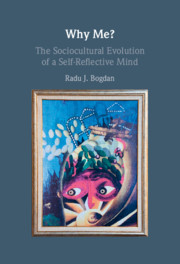2 - Basic Resources
from Part I - The Architecture
Published online by Cambridge University Press: 28 May 2021
Summary
This chapter focuses on the mental resources that handle the executive, cognitive and autobiographical tasks of reflection. Relying on neuropsychological and developmental theories and data, the chapter aims to show that the executive, cognitive and autobiographical capacities for reflection develop significantly or even entirely or become operational only after the age of four, in tandem with a sense-of-virtual-self capacity, initially in its autobiographical format. Section 2.1 surveys the key executive capacities for reflection – offline projections and intramental attention, their decoupling from ongoing perception-action circuits and deployment on a capacious working memory. Section 2.2 turns to the cognitive capacities that handle the metamental and conceptual processing of our own mental states. Taking sides in a disputed territory of memory research, Section 2.3 examines the autobiographical memory system that manages the sense-of-projected-self task involved in self-reflection.
Information
- Type
- Chapter
- Information
- Why Me?The Sociocultural Evolution of a Self-Reflective Mind, pp. 27 - 55Publisher: Cambridge University PressPrint publication year: 2021
